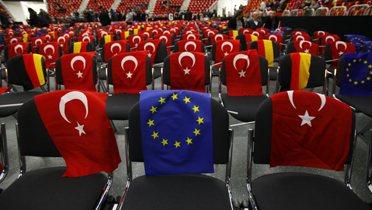INTRODUCTION
While the growing importance of religion in Turkey should not be dismissed, a more nuanced debate on Turkish foreign policy should take into consideration three different visions of Turkey’s place in the international order: (1) Neo-Ottomanism, (2) Kemalism and (3) Turkish Gaullism. The common denominator of these strategic visions is that they transcend the erroneous narrative prevalent in Western media that focuses on the dichotomy between Turkey’s Islamic and secular, pro-West factions. Many Western policymakers, analysts and scholars equate the notion of a Turkish divergence from the West—or the fear of “losing Turkey”—with the idea of an Islamic revival. This is an understandable fallacy. After all, Turkey’s population is almost fully Muslim and a political party with Islamic roots has won consecutive electoral victories. Moreover, this is exactly how some members of the Turkish secular establishment—the military, the Republican People’s Party (CHP) and the upper echelons of the judiciary—describe the cUrrent policies of the Justice and Development Party (AKP).
However, Turkey is too complex to fit into this facile paradigm. It defies sweeping generalizations about Islamization. This paper is an attempt to capture the multifaceted nature of Turkish foreign policy by analyzing the three strategic visions mentioned above.



